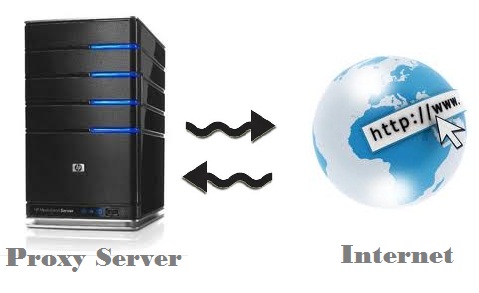A Proxy Server's Journey: From the Initial Request to the Final Response

Within today's digital landscape, proxies play a crucial role in enhancing confidentiality, safety, and convenience while traversing the immense ocean of the Web. However, what exactly is a proxy server, and how does it function? Basically, a proxy acts as an middleman between your computer and the sites you wish to access. By routing your online traffic through another server, it can mask your IP address and help protect your personal information online. This functionality opens up a realm of opportunities for users, from improving online safety to overcoming geographical restrictions on content.
Nevertheless, the benefits of using proxy servers extend well beyond mere privacy. Companies leverage them to strengthen cybersecurity, while users utilize them to access streaming platforms and online gaming with greater ease. Moreover, the realm of data scraping and market analysis has seen these tools become essential tools for data collection. Grasping the various categories of proxy servers—such as HTTP, Socket Secure, or residential proxies—along with their unique benefits and risks, can enable users to make informed decisions about their online strategies. From casual users to enterprise-level organizations, the life of a proxy server is integral to molding our linked digital experiences.
Comprehending Proxy Servers
Proxies serve as intermediaries between individuals and the online world. When a individual makes a call to reach a website, the demand is first directed to the proxy, which then forwards it to the target web page. The web page's feedback goes back to the proxy before returning to the client. This procedure conceals the client's original Internet Protocol address, enhancing privacy and enabling for the modification of requests and replies.

There are various kinds of proxy servers, each fulfilling different functions. HTTP proxies handle internet traffic, while SOCKS servers can manage any kind of information, making them versatile for various purposes. Transparent servers, on the other hand, do not change requests or replies but can be used for storing web content or sifting. Understanding these distinctions helps individuals choose the right proxy server for their specific needs.
The role of a proxy extends past simple anonymity; it also plays a crucial part in security and functionality. By serving as a intermediary, proxies can screen harmful content, prevent undesired traffic, and safeguard against cyber threats. Additionally, they can improve online speed by storing frequently accessed data. As internet activities continue to increase, the value of proxies in upholding safety and effectiveness cannot be overemphasized.
Benefits and Drawbacks of Using Proxies
Using proxy servers offers several significant benefits. One of the main benefits is better online privacy. By masking your IP number, proxies help you maintain your anonymity while navigating the internet, which is notably useful for protecting personal information from marketers and likely malicious actors. Additionally, proxy servers can help users overcome geo-restrictions, granting access to material that could be not accessible in their area, such as specific streaming services.
However, using proxy servers also comes with certain risks. Not all proxies are secure, and some may log your online activity, posing a risk to your privacy instead of safeguarding it. Complimentary proxy services, in particularity, often compromise user security, likely exposing sensitive data to third parties. Furthermore, relying on unreliable proxy servers can lead to lagging internet speeds and instability, adversely impacting your overall surfing experience.
Another significant point is the risk for abuse. Some users may exploit proxies for nefarious purposes like scraping data from sites without permission or participating in other unethical online activities. This can not only result in legal troubles but also subject the user to prohibitions and punishments from websites. Therefore, while proxies can be a useful tool for improving privacy and security, users must be careful and select reliable services to reduce associated risks.
Proxy in Business and Media
In the business world, proxies play a vital role in enhancing cybersecurity measures. Organizations utilize these proxies to monitor internet traffic, ensuring that staff adhere to web access policies while also protecting confidential data. By routing requests through a secure proxy, businesses can filter out harmful content and block access to potentially risky sites, creating a more secure online environment. This not only helps in mitigating the threat of cyber attacks but also improves total productivity by reducing distractions.
In the realm of leisure, proxy servers are instrumental for individuals wanting to access location-restricted content. Streaming platforms often limit access based on a subscriber's location, but with the use of proxy servers, individuals can bypass these restrictions seamlessly. Proxies allow individuals to mask their IP addresses with one from a alternative region, granting them access to unique shows, movies, and live events that may not be available in their location. This capability enhances the watching experience and opens up a vast library of content that many want.
Moreover, proxy servers can significantly improve the performance of internet activities such as gaming and streaming. They can reduce delay and lag, ensuring a smoother experience for gamers who rely on live interactions or high-speed data transfer. Helpful resources benefit from this improved performance, as proxies can help in data scraping and market research by managing multiple requests simultaneously without overwhelming the servers they target. This dual benefit of enhanced performance and security makes proxy servers a valuable tool in both professional and entertainment settings.
